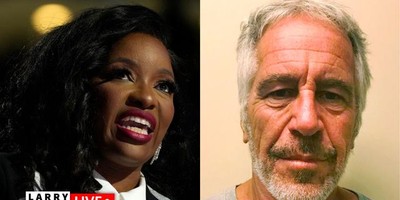As NATO meets to develop a new strategy to follow up with their Obama-led non-strategy on Russia, perhaps they should ponder what the old, successful strategy with Russia was that served NATO so well.
“On the one hand,” said the blueprint that helped beat back the Russian threat during the Cold War, NSC 68, “the people of the world yearn for relief from the anxiety arising from the risk of… war. On the other hand, any substantial further extension of the area under the domination of the Kremlin would raise the possibility that no coalition adequate to confront the Kremlin with greater strength could be assembled.”
Out of that statement was crafted one of the most successful blueprints for beating an opponent logistically – without resort to out and out war. It was in containment, as described in National Security Council paper number 68, that the free world mapped out how to beat the Soviet Union’s probing, opportunistic expansion of their evil empire.
Today has many similarities with the conditions that were found in 1950 when NSC 68 was published. Today Russia still has a fragile, resource rich economy controlled by a few for a few benefactors. In relative terms, the economy of Russia is small in comparison to the rest of the industrialized West. Russia’s economy of $2 trillion is about 12 percent of that of the United States. Or to put it another way, 143 million Russians produce about the same amount of goods and services as the 38 million people of California, or the 20 million people of New York.
Recommended
Russia still has difficulty producing enough to satisfy it’s own citizenry—in even basics like food.
“Although the Russian Federation has one of the largest areas of arable land per capita in the world,” reports FT.com in wake of the Russian ban on Western imports of food last month “the country relies on imports for up to 40 per cent of its food supplies.”
In 2009, Russia produced about $19 billion in agriculture products. In 2012, California, in comparison, produced $42 billion in agriculture products. California could, in fact, feed all of Russia, while Russia can’t event feed 60 percent of its citizens.
These facts are lost on neither the Kremlin nor the regular Ivan-on-the-Street in Moscow or St. Petersburg. Putin, until very recently, was not that popular in Russia. In October 2013, Putin’s job approval rating was only 48 percent according to the Moscow Times. Now it’s above 85 percent.
One of the most successful ways for dictators to cling to power in light of mass dissatisfaction is by waging short, triumphant wars to distract a citizenry looking for someone to blame.
And while no doubt various Putin war gambits have worked thus far, that’s mostly because he’s faced no opposition from NATO or the West. But that could be changing.
“Eastern European NATO members, including Poland,” reports Reuters, “have appealed to NATO to permanently station thousands of troops on its territory to deter any possible Russian attack.” While NATO has thus far discounted that possibility, expect a U.S. commitment to Eastern Europe to be a key issue through 2016. It’s a commitment that I have advocated for previously, and with increased support for de facto NATO ally Ukraine, one the surest way to secure peace and stability in the region.
One of the easiest ways for dictators to lose power is to wage long, unsuccessful wars in the face of mass unrest. That’s what happened to the dictators of the Soviet Union. And Putin could share their fate.
But only in the face of strength that neither Obama nor Washington-- nor other Western powers-- seems to possess.

























Join the conversation as a VIP Member